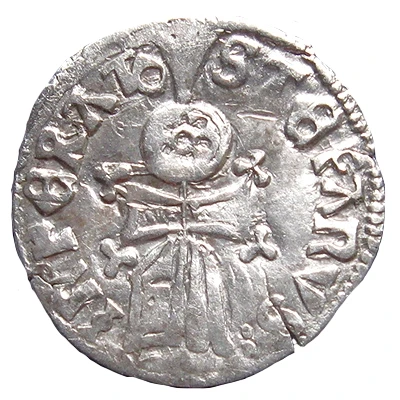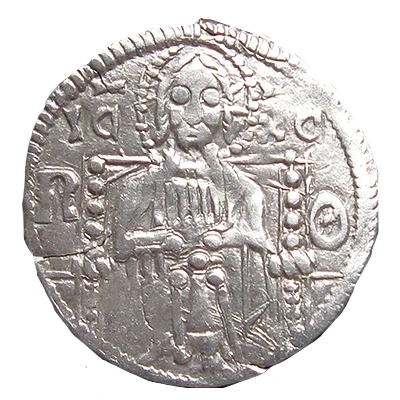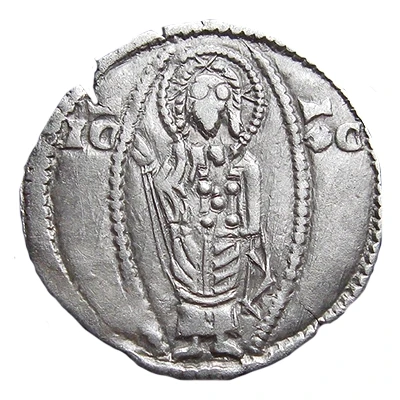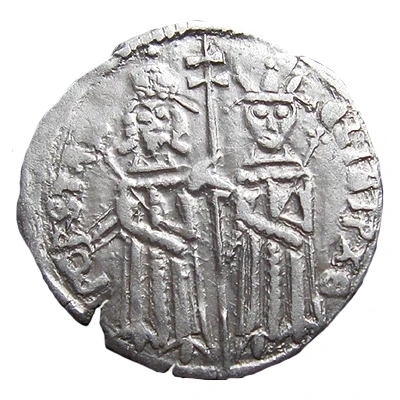


© Beast Coins
Dinar "Helmet Type" - Stefan Uroš IV Dušan ND
| Silver | 1.3 g | 18 mm |
| Issuer | Serbia (medieval) |
|---|---|
| Tsar | Stephen Uroš IV Dušan the Mighty (Стефан Урош IV Душан) (1346-1355) |
| Type | Standard circulation coin |
| Years | 1346-1355 |
| Value | 1 Dinar |
| Currency | Dinar (1217-1459) |
| Composition | Silver |
| Weight | 1.3 g |
| Diameter | 18 mm |
| Thickness | 1 mm |
| Shape | Round (irregular) |
| Technique | Hammered |
| Demonetized | Yes |
| Updated | 2024-10-07 |
| Numista | N#123410 |
|---|---|
| Rarity index | 91% |
Reverse
Christ enthroned, holding Book of Gospels
Lettering:
IC-XC
R | Θ
Comment
Reference: Jov 11-21Comment: He was first born son of King Stefan Decanski and Theodora, daughter of Bulgarian Tsar Smilac. His early life was spent in Constantinople, where as a youngster he spent around seven years (1314 to 1320). There he learned Greek, comprehended Greek life and culture and got clear view of inner value of Greek empire. He himself was more soldier then diplomat, as young man he excelled in two battles, defeating Bosnian ban Stefan II Kotromanic in 1329 and in 1330 Bulgarian Tsar Mihailo. He overthrew his father and then crowned himself as king on September 8, 1331. In 1332 he married Jelena, sister of Bulgarian Tsar Aleksandar, a woman of strong will, who had large influence on him and born him son Uros and one daughter. Dusan was the only real Tsar of Serbia, creating the Serbian Empire. Under his rule Serbia reached it territorial peak and was one of the largest states in Europe.
http://www.serbianmedievalcoins.com/King-Dusan.php
Interesting fact
One interesting fact about the Standard circulation coin Dinar "Helmet Type" - Stefan Uroš IV Dušan ND (1346-1355) from Serbia (medieval) made of Silver weighing 1.3 g is that it features a unique design on its obverse side, showcasing a knight wearing a helmet and holding a shield and a sword. This design was meant to symbolize the power and strength of the Serbian kingdom during the rule of Stefan Uroš IV Dušan.

